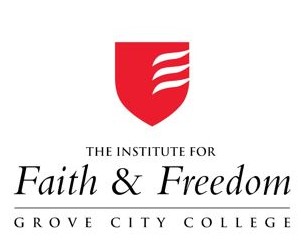Does Trump Still Wield His Electoral Magic?

Despite recent polling that shows sharp declines in his national favorability ratings, Donald Trump remains the preferred presidential pick of many, if not most, self-identified Republicans.
This durable popularity doesn’t stem from the former president’s sterling character, towering intellect or coherent conservative philosophy. It’s based, rather, on the stubborn belief that he alone possesses a magical, mystical, supernatural ability to fight and win for the bruised and battered GOP.
Without Trump, according to this line of reasoning, Republicans won’t win in crucial battlegrounds like Pennsylvania, Michigan, Wisconsin, Ohio and Iowa. John McCain and Mitt Romney lost all five of those states to Barack Obama, and without a stronger performance in that industrial heartland, Republicans will remain strangers to the White House.
Such arguments may make superficial sense, but they can’t prevail against a serious examination of the voting patterns in both of Donald Trump’s presidential campaigns. In his startling victory of 2016, as well as his contested defeat in 2020, Trump ran behind the Republican establishment candidates who shared the ballot with him in battleground states, not ahead of them. The claim that he possesses a unique ability to rally blue collar voters who remain inaccessible to more conventional Republicans, is an easily disprovable myth that could spoil the hopes of Republican strategists if they fail to challenge it for 2024.
Take Trump’s performance six years ago, facing the deeply flawed candidacy of Hillary Clinton. He lost the popular vote by nearly 3 million, and actually won a smaller share (46.1% compared to 47.2%) than Mitt Romney four years earlier. Almost nowhere did candidate Trump lead the Republican ticket; instead, he trailed local conservatives with more conventional connections to GOP ideals and traditions.
In Ohio, for example, Trump won with 51.3%, but his moderate, establishment ticket-mate – Senator Rob Portman – scored a landslide, squashing his Democratic rival by 58 to 37%. Amazingly, 278,000 Buckeyes voted for their incumbent Senator but declined to back the Republican nominee for president.
Similarly, in Wisconsin Trump carried the state with just 47% of the electorate while Senator Ron Johnson won an actual majority and drew 74,000 more votes than the presidential nominee. And in Iowa, Trump scored a comfortable 53% victory while the incumbent Senator, Charles Grassley, a long-time denizen of the DC swamp, swamped his Democratic rival with a full 60%.
The same pattern repeated itself in 2020. Despite claims that dastardly Democrats stole the election through massive fraud, those purported plotters somehow forgot to cheat any other Republicans in key hotly contested states, with down-ballot nominees polling far more strongly than the embattled president. In crucial battlegrounds, the vote for Republican legislative candidates proved significantly stronger than the support for Trump. In Ohio, GOP nominees for the state’s House of Representatives drew 58%, Trump only 51% – hardly evidence of appealing to voters who other conservatives couldn’t reach. If anything, the Republican candidates for the legislature provided coat-tails to Trump, not the other way around. In Arizona, GOP nominees for the state’s House of Representatives drew more votes than the incumbent president by a stunning edge of more than 800,000.
These results should shape Republican attitudes toward another Trump candidacy in 2024 and limit his role in the crucial midterms of 2022. Rather than coveting a Trump endorsement as the key to victory in every state or district, surveys show unexpected strength for the party itself, even without the benefit of Trumpian charisma. An NBC poll at the end of last year showed 56% of GOPers who saw themselves as supporters of the Republican Party, while 36% described themselves primarily as backers of Donald Trump.
The crucial test for the myth of Trump’s indispensability will come in the primaries preceding November’s mid-term elections. The former president, with much fanfare, has endorsed more than 100 candidates at every level in contested nomination battles. Already, polling indicates that Trump’s backing may be at best a mixed blessing: while 21% of voters say they are “more likely” to cast their ballots for a Trump-endorsed contender, 42% – exactly twice as many – say they’re more likely to oppose any candidate who wins the MAGA man’s seal of approval.
Such responses may not delight the former president’s most faithful followers but provide encouraging news for the party at large. Freed from Trump’s domineering presence as the all-but-inevitable nominee, the presidential primary process for 2024 can open up to rising stars and reformist policies. With the nation facing dire dilemmas at home and abroad, the GOP can move past wearying, worthless debates over voting procedures in the last election. As C.W. Cooke puts it in National Review: “Change, not re-runs, ought to be the GOP’s theme.”
Trump’s triumph in 2016 came as such an electrifying, illogical surprise that some Republicans have been unable to get over it, feeling attached to Trump in an almost superstitious sense as the talisman that may deliver more good luck and providential aid. But a serious re-examination of his political record (he’s only run for office twice in his life) should obliterate the belief in his paranormal powers to achieve electoral miracles. Conservatives will do better by cherishing the real magic of new ideas and fresh starts.





















